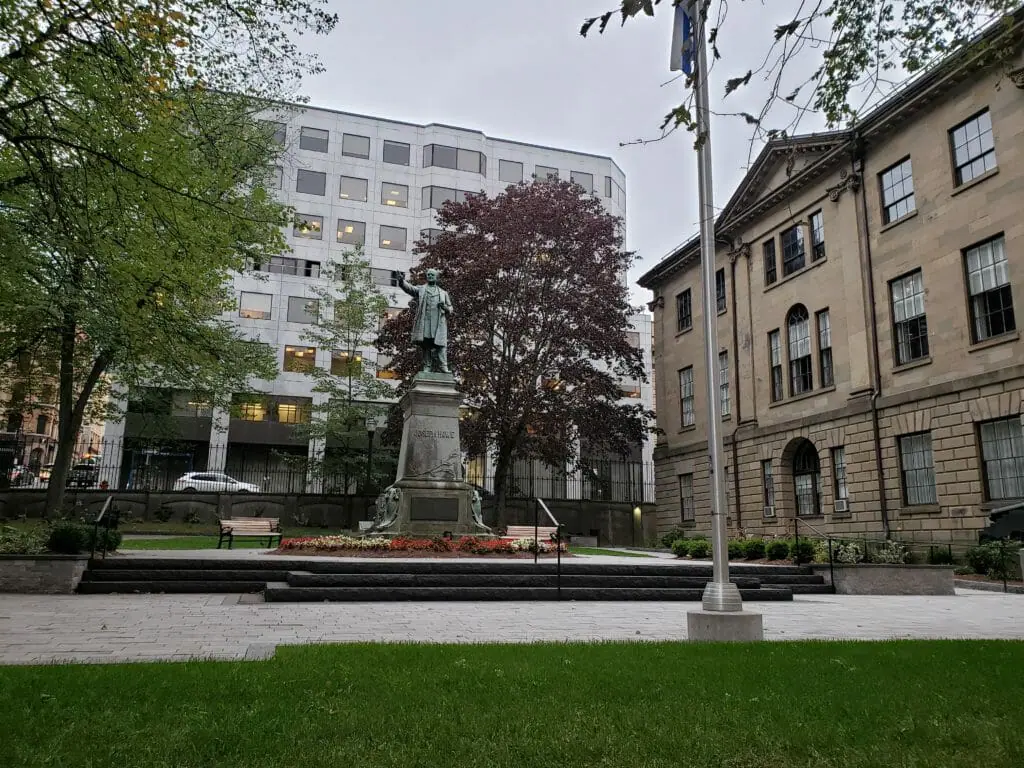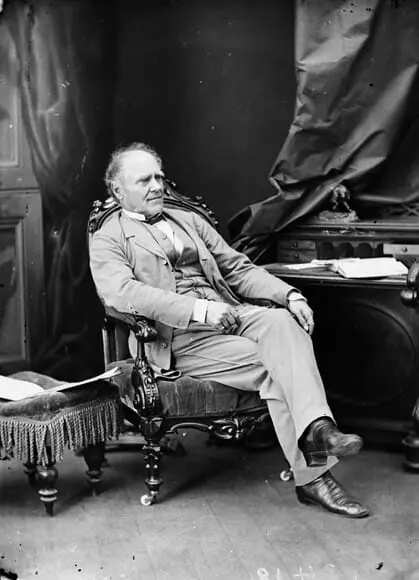The name Joseph Howe appears on a number of different buildings, parks and statues in the Halifax Regional Municipality. But who really is the man behind the name?
Alive from 1804 to 1873, Joseph Howe lived and died in Halifax. He was known for his way with words in his speech and writing, which helped him earn his reputation as a feisty reporter.
A journalism legend
After becoming editor of the NovaScotian newspaper in 1828, he published a letter claiming that local politicians and police pocketed over £30,000 in taxpayer money. It was a scandalous subject, but being critical of the government in the papers was even more shocking an act. He was charged with criminal libel: a serious crime in the day.
In what might still be the biggest trial in Nova Scotian history, Howe used his infamous powers of speech to win the case. He was a charmer, and during the trial used some silky lingo and turns of phrases such as challenging jurors to “leave an unshackled press as a legacy to your children.” While that didn’t immediately change the libel laws in place, it set a major trend in motion towards freedom of the press in Nova Scotia and Canada as a whole.
The son of the judge presiding over Howe’s trial was so rattled by the result of the trial that he challenged Howe to a duel by revolvers at Point Pleasant Park. When Howe’s opponent missed his shot, Howe fired his own gun into the air.
Joining politics
For much of Howe’s life, Great Britain controlled almost all aspects of life for the colonists who lived in Canada. So, after journalism, Howe’s next project was political: he was elected as provincial secretary of Nova Scotia, and his main goal was responsible government.
In other words, Howe wanted citizens to have more say in how their colony was run and by whom. Though progressive for the time, this excluded a wide range of people who lived in Nova Scotia, such as the Mi’kmaq whose society had flourished in the area for thousands of years prior to colonial rule.
Howe kept busy advocating in Great Britain on behalf of Nova Scotia. He wanted a better tax system, easier exporting of goods like fish and lumber and better representation in London.
Howe also had a thing for railways. He campaigned for a railway commission that would link Halifax, Windsor and Truro.
He hated the idea of Canadian confederation (which was kind of a big topic at the time) as he was a fierce loyalist to England. He also thought it might make Nova Scotia a little less independent. In the end, his opinion had little effect at the 1864 Charlottetown Conference in Prince Edward Island, which set confederation in motion.
To make a long, tedious story about angry men shorter, Howe basically ranted and raved against confederation to Canada’s overlords in London to no avail. He did, however, eventually become a federal minister and provincial secretary in 1869 where he continued to rant and rave about confederation’s evils with gusto.
Howe was known as a loud-mouthed politician who rarely flew under the radar. But he also pursued poetry, writing beautiful words about town clocks, country life
In 1873, Howe became lieutenant governor of the home province he loved. Just a few weeks later, he died.
Memory of a man
Today, it’s hard to walk more than a few blocks down the streets of the municipality without running into Howe’s name. There’s Joe Howe Park in Dartmouth, a statue of him in downtown Halifax and even a waterfall named after him in Truro.
But Howe Hall – that Dalhousie University residence building on Coburg Road? That’s named after a Clarence Decatur Howe, Dal’s first chancellor.
Nonetheless, Joseph Howe’s commitment to Nova Scotia and famous battle for the free press have cemented him in Halifax history.
“Who the heck?” is a rotating history column in the Gazette’s Arts & Lifestyle section, reporting on the namesakes of buildings and institutions on campus and around the city. Have an idea on who we should feature next? Contact arts@dalgazette.com.




Recent Comments